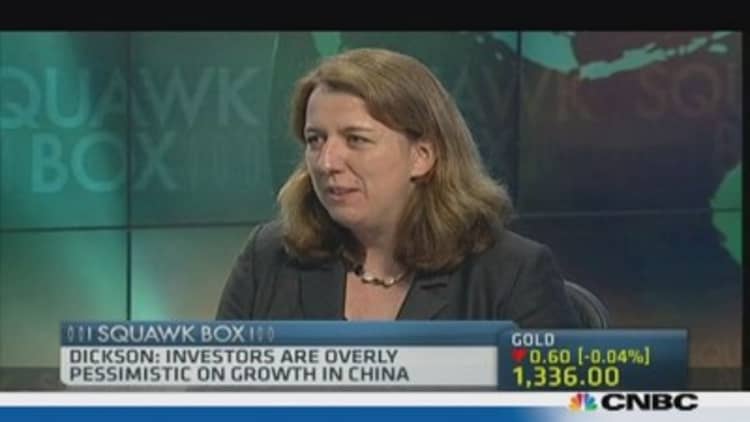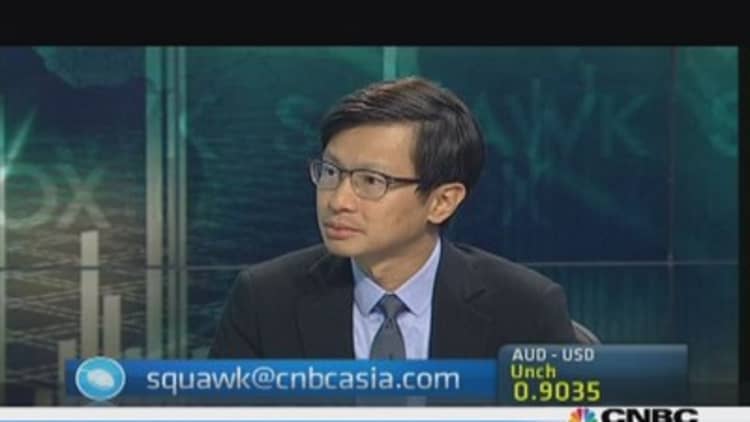
After months of fund outflows, emerging markets shouldn't be treated like pariahs as they offer solid value, analysts said.
"Emerging markets have really been beaten up a lot, probably a bit unfairly since most of last year and into this year," said Julie Dickson, emerging market equity portfolio manager at Ashmore Investment Management, which has around $75.3 million under group management. "It means fantastic value."
(Read more: How fragile are emerging markets?)
Emerging markets have seen a brutal sell-off this year after sharp falls in the value of the Argentine peso, Turkish lira, South African rand and Brazilian real triggered panic selling across the asset class, with analysts largely blaming the turbulence on the Federal Reserve's move to begin tapering its asset purchases.
Funds have flowed out of emerging market equity funds for 13 consecutive weeks, according to data from Jefferies, with a total $18.76 billion exiting the segment so far this year.

But while concerns about tapering and the potential for higher interest rates have decked emerging market assets, not everyone is certain this will hurt economies.
"These markets and their central banks have so much firepower to deal with it and to step in where needed, that I think the risks are overstated and overdone," Dickson told CNBC, noting some markets have rebounded since September of last year after stepping up efforts to deal with currency imbalances and fiscal issues.
(Read more: Emerging market opportunity in long term: Blankfein)
She isn't the only one who isn't terribly concerned about tapering's effect on emerging markets.
"I don't buy the theory that a lot of the money that came out of the U.S. came into the emerging markets during quantitative easing," said Kelvin Tay, regional chief investment officer at UBS Wealth Management. He believes the instead that the Fed's easy money policy spurred a lot of borrowing by companies in Asia and Latin America.
(Read more: Are markets headed for a perfect storm?)
"If the rates go up gradually, if the 10-year U.S. Treasury yields go up gradually, I don't see a risk to the systems here or in Latin America. But if the rates go up very sharply then you have a problem," he told CNBC.
But both Dickson and Tay are selective on which emerging markets to play, preferring the Asian region and tipping South Korea and China as value plays.
Emerging Asia shares are trading at 10.4 times 12-month forward earnings, below the five-year average of 11.5 times, according to data from Credit Suisse. Emerging Europe is at 6.3 times earnings, compared with a five-year average of 7.0 times, while Latin America is at 11.2 times, compared with a historical average of 11.5 times, the data show.
Both South Korea and China are "deeply undervalued," Tay said, noting the two markets offer plays on Asia's tech sector. Tay is also positive on China's bank and property sectors, despite concerns over a potential real-estate bubble and worries over non-performing loans (NPLs).
(Read more: Are China market dabblers throwing in the towel?)
"The market has overreacted," he said. "We don't think the NPLs are going to spike up very, very sharply. There might be a rise but, it's not going to go to a level where it's going to cause systemic risk to the Chinese economy," Tay said.
"You've got to step backward and remind yourselves that China has $3.8 trillion in reserves," he said. "Then they have another 80 trillion yuan in investments that they can actually sell if they need to prop up the system."
—By CNBC.Com's Leslie Shaffer; Follow her on Twitter @LeslieShaffer1

